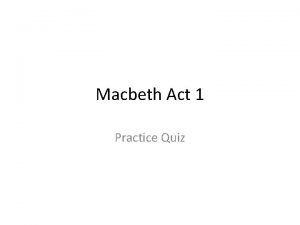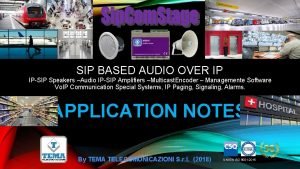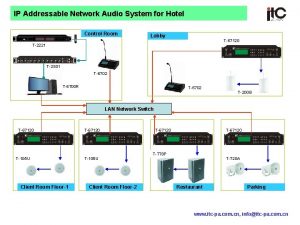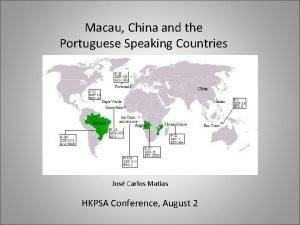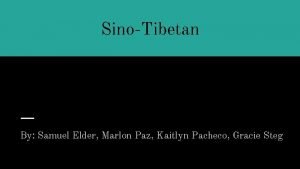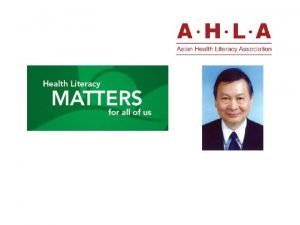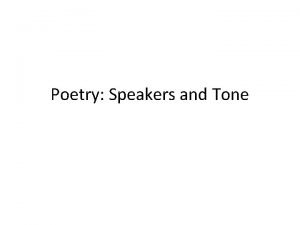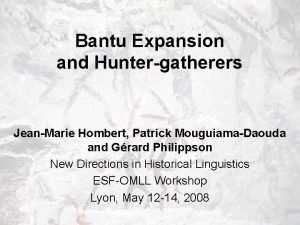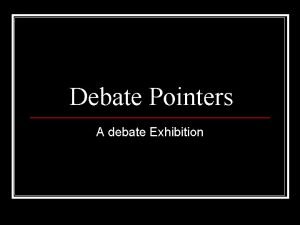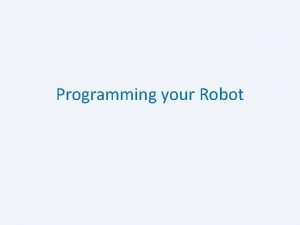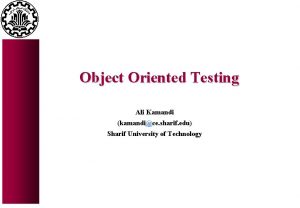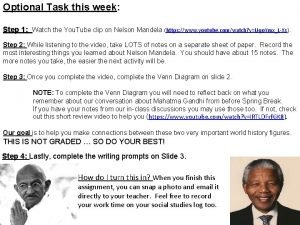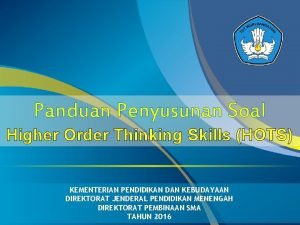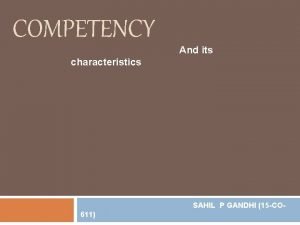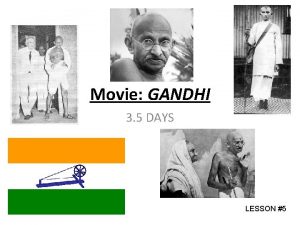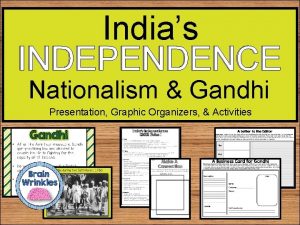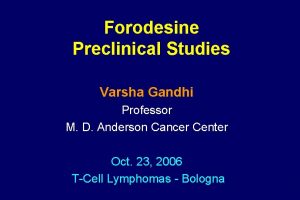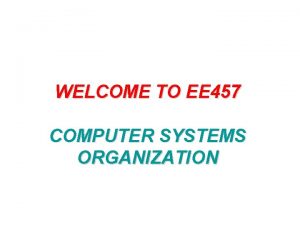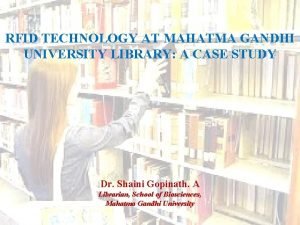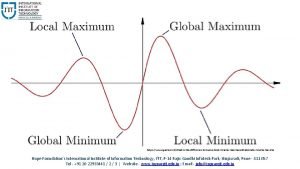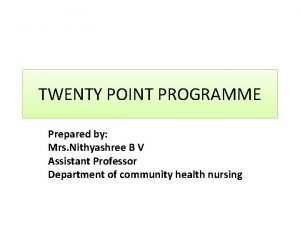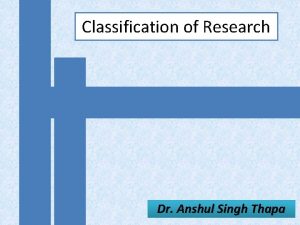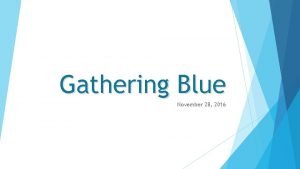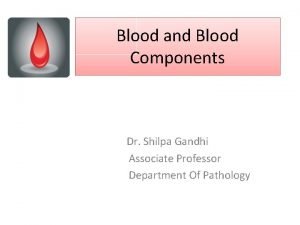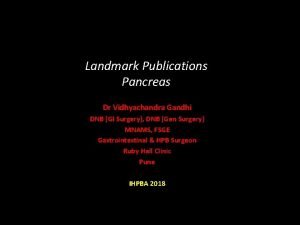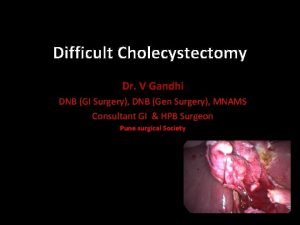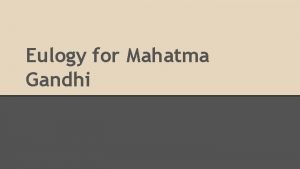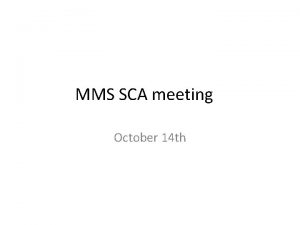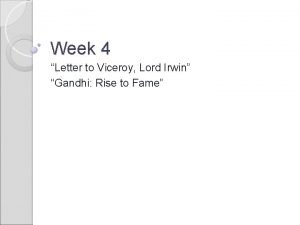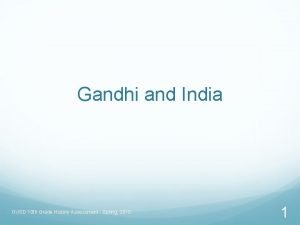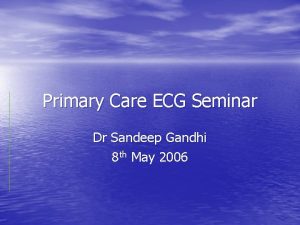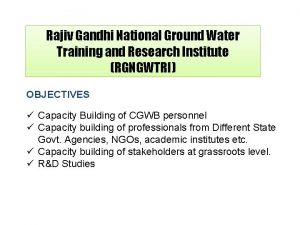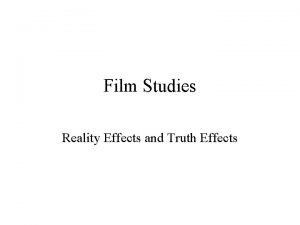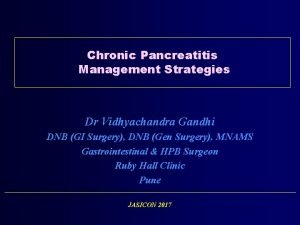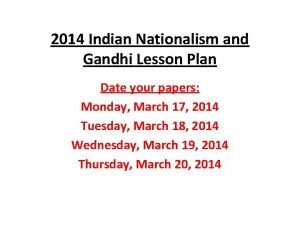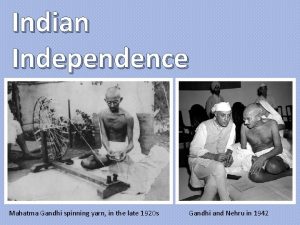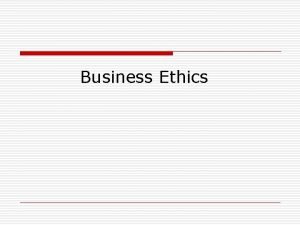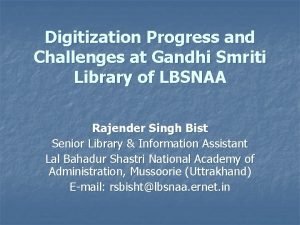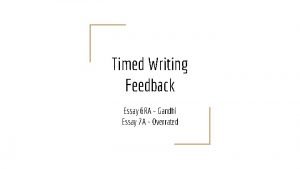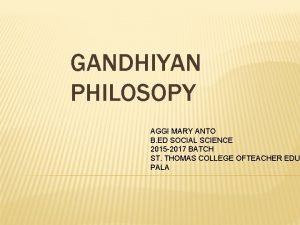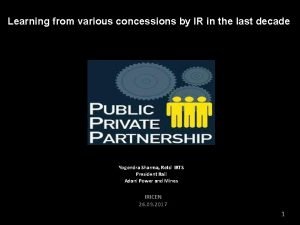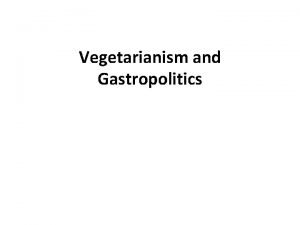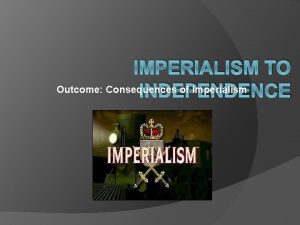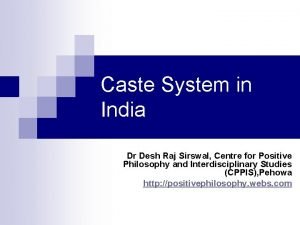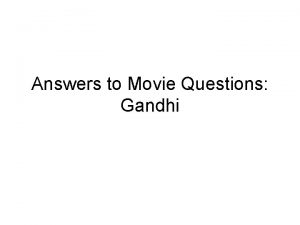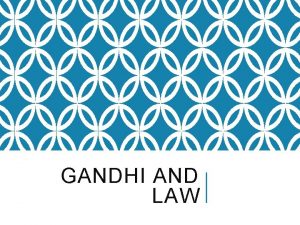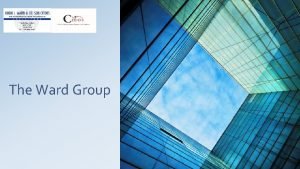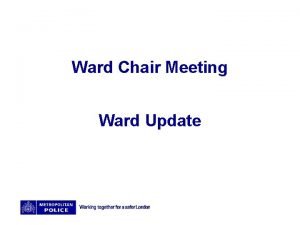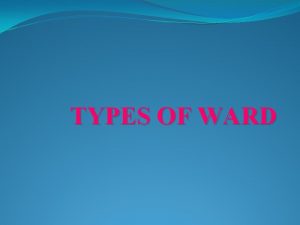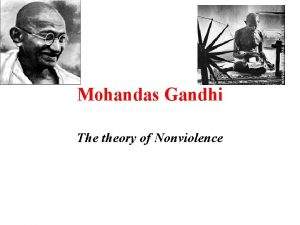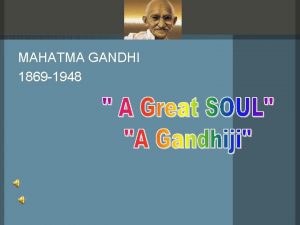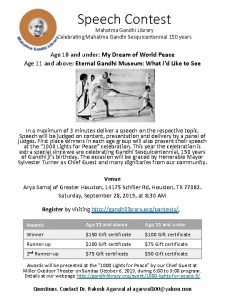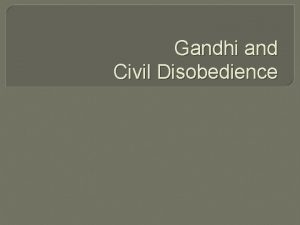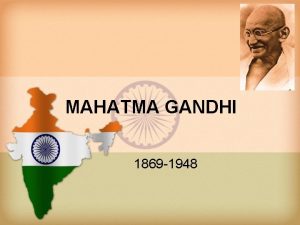Speakers Monica Gandhi Ward 86 Monica Gandhiucsf edu




































































- Slides: 68

Speakers: • Monica Gandhi (Ward 86) Monica. Gandhi@ucsf. edu • Andy Scheer (SF City Clinic) andy. scheer@sfdph. org • Negin Mohajeri (PRC) Contact Beth Mazie, beth. mazie@prcsf. org • Bill Hirsh (ALRP) bill@alrp. org • Jeff Kosbie, Moderator (BALIF) BALIF co-chair, chair@balif. org


COVID-19 and HIV Monica Gandhi MD, MPH Medical Director, Ward 86 June 1, 2020

Outline of talk • COVID-19 pandemic worldwide and United States • COVID-19 epidemic locally in San Francisco • HIV and COVID-19 • Why could it be worse? • Why could it be better? • What have we seen in San Francisco (and elsewhere) for people with HIV? • Health concerns for people with HIV • Your medical questions?

How do new infectious diseases come into humans? Activity Global Warming Interaction with animals (hunting, eating, pets) Changes in agriculture We encroach onto animal habitats Urbanization Other Consequence • Infections move North to get more cool and then humans are not immune to them • “Zoonoses” is when an organism jumps from nonhuman to human hosts • New crops attract new pests • Other animals crowded, microbes can mutate, mix • Destruction of rain forests bring humans into contact with unfamiliar microbes • People more crowded together, contagious diseases • Jet travel spreads diseases even when asymptomatic • Ships can carry organisms around • Breakdown of public health measures, poverty, war, famine, terrorism

What is a Coronavirus? • Viruses cannot live on own in the environment- they need a “host” to help them replicate • Corona means “crown” in Latin • Coronaviruses named that because spiky on outside • Usually cause the “common cold” – sneezing, runny nose, mild sore throat, mild fever

Have we ever seen coronavirus cause more than the “common cold” before? • This new coronavirus is causing more severe symptoms than “upper respiratory infection” symptoms, like fever, cough, shortness of breath, sometimes even pneumonia • We had another coronavirus which came out in the world like this in 2002 and yet another in 2012 so this is the 3 rd time

Another coronavirus named SARS came out in 2002 with ARDS • In 2002, there was another virus that came out of China called “SARS” - Severe Acute Respiratory Syndrome (SARS-Co. V) • Lasted about 9 months in the world until 2003; 8098 cases, 29 countries, 774 deaths • 29 cases in U. S. but 0 deaths, more in Canada • Horseshoe bat, then cat-like mammal called palm civet human to human

Middle East respiratory syndrome coronavirus in 2012 (MERS-Co. V) • First came out in Saudi Arabia in 2012; all cases linked to Middle East • Went around world from 2012 -2019: 27 countries, 2494 cases, 858 deaths • United States: 2 cases in May 2014 (Indiana, Florida) – both health care workers from Saudi Arabia • Was originally in camel and then went to humans then human to human

What about this new coronavirus? • Illness with fever, cough, pneumonia reported in Wuhan, China on New Years’ Eve (December 31, 2019) after “whistleblower event’ • People initially had been exposed to seafood and markets in “live markets” • January 7, 2020: Identified etiology a new coronavirus • Has been spreading around world since then • January 30, 2020: WHO - “global health emergency” • March 11, 2020: WHO – “Pandemic”

Where are we as of today in world? June 1, 2020 5 pm • Worldwide: 6, 361, 630 (377, 148 deaths) • United States: 1, 858, 931 cases; 106, 921 deaths • New York: 372, 000; 23, 959 deaths (NYC 201 K, deaths 16, 410) • Northeast major hotspot • California: 114, 732 (4218 deaths) • San Francisco: 2570 cases, 43 deaths • Shelter in place orders extended ‘indefinitely’

Hotspots in the United States

What does COVID-19 in SF look like? Mission, So. MA, Bayview, Dogpatch


HIV and COVID-19 • Timeline in city • March 5 ---First cases (two) of community transmission reported • March 6– Many clinics started developing guidelines on telephone visits • March 16 - Shelter in place by San Francisco until April 7 • March 19 – Shelter in state of California • April 1 - Shelter in place in San Francisco extended to May 3 • …. • It keeps on going! Shelter in place “indefinite” but May 22 more openings…

Are there reasons to think PWH could have worse outcomes with COVID-19 • Theoretically yes but not seen to date • PWH (especially those with low CD 4 counts and high viral loads) are immunosuppressed • However, immunosuppression not a clear risk factor for SARS-COV-2 (and could even help) • PLHIV have an increased frequency of some of the known risk factors associated with severe COVID-19 • Nearly half of the PWH in the U. S. (and 65% of PWH in the city of San Francisco) are >50 years • PWH have a higher rate of cardiovascular disease and pulmonary disease, including chronic obstructive pulmonary disease, than general population • Higher rates of poverty and marginal housing among our safety-net population of PWH at Ward 86

Are there reasons to think PWH could have better outcomes with COVID-19? • Theoretically yes and maybe that is happening • Tenofovir may inhibit replication of the SARS-Co. V-2 virus (looks like Remdesivir which does work against SARS-Co. V-2) • Lopinavir/ritonavir and atazanavir/ritonavir MAY have effects but not in studies so far • Maybe tenofovir or HIV itself suppresses immune effects and inflammation and could help all the inflammation in severe disease with COVID-19

Any data from anywhere on this? • Overall, there is very little data on the risk of SARS-Co. V-2 infection or severe COVID 19 disease among people with HIV (PWH) • Main data papers are one from Italy on 47 patients and one from New York City on 21 patients with HIV and COVID-19 • Preliminary look from our city • 71 PWH out of 2280 COVID cases on 5/20/20 (or 3. 1%), only 3 hospitalized

Data on HIV and COVID-19 • Italy data: COVID-19 hospitalization occurred at ages an average of 10 years younger than people without HIV although the majority of PWH had at least one co-morbidity that could predispose • NYC data: Among the 21 patients at NYU, when comparing to 42 matched controls without HIV, there was a trend towards greater intensive care unit (ICU) admission (29% vs. 17%; ) and need for intubation (4% vs. 12%) • Case report (China): One case reports of an individual with HIV, HCV, and COVID-19 showed that the RT-PCR was repeatedly negative, the Ig. M peak was prolonged (42 days) and Ig. G titers were blunted compared to those without HIV • JURY still very much out and in NYC, hospitalizations don’t seem to match proportion of those with HIV Zhao CID 2020; Karmen-Tuohy S Med. Rx 2020; Gervasoni C CID 2020

Impact of HIV on COVID



Access to HIV care and healthcare coverage in a COVID environment

tiny. cc/SFHIVCare

tiny. cc/SFHIVNavigation

Quick and easy entry into care Ward 86 SF City Clinic

Already connected to care? use apps to order refills log into your clinic’s client portal to reach your medical team use pharmacies that deliver find more at cdph. magellanrx. com this is not an endorsement; for example only

Healthcare Coverage

HIV & Health Insurance 101 tiny. cc/hivbenes A self-guided, on-line overview of health insurance and wrap-around benefits programs available for People Living with HIV

Covered CA is the marketplace people use to purchase private insurance such as Kaiser, Health. Net, Blue Shield or others. Subsidies available for incomes up to 600% MAGI FPL* Where to Apply Eligibility Covered. CA. com U. S. citizens (800) 300 -1506 Legal permanent residents & lawfully present individuals Extended Special Enrollment Period until 6/30/2020 Households w/o Medicare or employer-sponsored health insurance (exceptions apply) * Modified Adjusted Gross Income of the Federal Poverty Level

Temporary changes to ADAP, OA-HIPP, EB-HIPP, MDPP • Clients set to expire between 3/1/2020 and 8/30/2020 automatically extended to 8/31/2020 (HIPPs to 9/30/2020) • New and re-enrollments OK via phone or email contact your enrollment worker (EW) or call 844 -421 -7050 • Use 2018 tax return for income proof until 7/15/2020 • Find an EW tiny. cc/ADAPEnrollment. Sites

Medi-Cal, Cal. Fresh & CAAP • Human Service Agency closed to walk-ins o phone, email, fax preferred; face-to-face if necessary o call for enrollment status update: (415) 558 -4700 • Apply online for these programs @ My. Benefitsw. Cal. Win. org ADAP will pays for medications while waiting for Medi-Cal to be approved! Income Thresholds found here tiny. cc/Income. Caps 2020

Thank you! Andy Scheer, LCSW Medical Social Worker SFDPH, San Francisco City Clinic Andy. Scheer@sfdph. org (415) 487 -5511 - office


PRC Services Presented by: Negin Mohajeri

About PRC For over 25 years, PRC’s Benefits Counseling Program has provided benefits advocacy and direct legal representation to San Francisco residents in response to the need for economic justice and health access We provide free legal benefits representation using a harm reduction and client-centered approach to people living with HIV/AIDS or mental health issues. 6 years ago, in response to the ACA and ongoing healthcare access challenges, PRC developed the Equal Access to Healthcare Program.

Equal Access to Healthcare Program (EAHP)

EAHP Launched 2014 in response to a need identified by the city’s HIV Healthcare Reform Task Force Funded by CDPH Goal Identify and overcome barriers to healthcare access for HIV-positive San Francisco residents through counseling, advocacy, and training. Target Client Base • HIV+ SF residents with income below 500% FPL • Community partners who serve HIV+ SF residents

EAHP Modes of Service • Consultation • Intake/legal Representation • Community Outreach/Training • Policy Recommendations

Most Common Issues for EAHP • Denial or discontinuation of Medi-Cal • Reducing out of pocket medical costs • No insurance or insurance ending soon • Reducing drug co-pays at the pharmacy • Medicare enrollment options • Denials of medical services or medications

Benefits Counseling

Benefits Counseling Goal Provide comprehensive specialized, culturally competent free legal benefits representation within a harm reduction and client-centered context, emphasizing one on one relationships. Target Client Base • HIV+ SF residents • People with mental health disabilities referred by a Community Behavioral Health Services referral site • People living with disabilities who are part of a “household” • People who are homeless or at risk of homelessness

Modes of Service Benefits advocacy & direct legal representation related to people seeking access to public disability benefits • SSI/SSDI advocacy • CAPI advocacy • Advocacy for those facing cessation of benefits (CDR) *Focus on medical determinations rather than non-medical eligibility criteria

Stages of Appeal We represent clients at all administrative levels of the Social Security disability application process • Initial Application • Reconsideration • Administrative Hearing • Appeals Council

COVID Issues Since March 2020, due to the COVID-19 global pandemic and San Francisco’s subsequent shelter in place order, our services have continued, but have been affected • EAHP • We don’t really know? • Legal Advocacy/Benefits Counseling • • SSA offices closed In-person administrative hearings postponed or telephonic Case development is challenging CDRs on hold

Need More Information? For EAHP: Contact Jason Cinq. Mars, supervising EAHP attorney at (415) 972 -0810 or Jason. cinqmars@prcsf. org For anything else: Contact PRC at (415) 777 -0333 http: //prcsf. org

Questions


Updates from ALRP during the COVID-19 Pandemic AIDS Legal Referral Panel Bill Hirsh Executive Director

Please note: Nothing in these slides is intended as legal advice. Please contact an attorney for more information on how to assert your rights under any of the guidance described today. For legal advice, call ALRP at (415) 701 -1100 50

Evictions during the COVID-19 Pandemic • Mayor Breed issued an order in March 13, 2020 (which was subsequently amended in April 2020) that requires the following: • All residential evictions by the San Francisco Sheriff’s Department are banned through June 30, 2020. Evictions cannot resume until two months after the expiration date (August 30, 2020. ) • Any tenant who misses a rent payment due to “financial impacts of COVID-19” (For example, losing a job, increased expenses, business closure/slowdown) between March 13, 2020 through June 30, 2020, will have 6 months from the expiration of the Mayor's order to pay the rent. If a tenant has not paid by December 30, 2020, a landlord can start an eviction for nonpayment of rent. • Landlords may not charge late fees or interest for unpaid rent due to financial impacts of COVID-19. • A landlord may not raise the rent of a rent-controlled unit, between April 24, 2020 through June 23, 2020. This prohibition is extended to July 30, 2020 for city-regulated units (For example, BMR units. ) 51

Evictions during the COVID-19 Pandemic, cont. • San Francisco Superior Court has issued a 90 -day automatic continuance for all eviction trials, settlement conferences, discovery, and previously-filed motions. Hearings for these matters shall be scheduled on a rolling-basis after June 19, 2020. • Hearings for newly filed motions will be scheduled for a date on or after June 22, 2020. • A “court holiday” is in effect through June 19, 2020, which effectively extends all filing and response deadlines for court documents and discovery past that date. The sole exception to these rules are cases where an eviction lawsuit is based upon a threat to the health and/or safety of building residents or staff. These “exception” cases will continue to proceed pursuant to normal timelines for evictions. 52

Further information on evictions • The Court has instituted new rules requiring a showing by a landlord to the Court that a newly filed eviction case falls into the "health and safety" exception, before a summons can be issued • A summons won't be issued requiring a tenant to respond to the lawsuit at all, until the landlord goes to court and proves that the case falls into the exception. • For any housing case filed before SIP/the continuances went into effect, the landlord will need to make an affirmative showing that the case is an "exception" case before a hearing case be scheduled. • Even though there is an automatic continuance for all eviction cases, landlords might still try to petition the court to allow a case to move forward as an "exception" case AND it could happen in the background, without the tenant even knowing or having an opportunity to assert their rights. • Tenants should contact ALRP as soon as they have any housing issue, so we can intervene and try to prevent a landlord from petitioning the court to allow the case to proceed as an exception, no matter the basis for the eviction. 53

The Response • ALRP, local legal service organizations, and back rent assistance agencies are also preparing for an influx of eviction cases, based upon a tenant’s inability to pay rent after losing a job due to our city’s shelter-in-place order. • In many cases, rental assistance agencies are relaxing their client qualification criteria, fast-tracking applications, and increasing the amount of monetary support they can provide, in order to meet this increased demand. • At the same time, ALRP and other local legal service organizations are demanding stronger protections for tenants who lose their jobs, by way of advocacy to local officials. To reach the ALRP Housing team for any housing issue (eviction or other), please call (415) 701 -1200 ext. 330 54

Immigration during the COVID-19 Pandemic • ALRP’s immigration legal services are available even during the crisis. • USCIS offices will reopen on or after June 4, unless the public closures are further extended. • All non-detained hearings are postponed through and including Friday, June 12, 2020, unless closure is further extended. Opened for filings and detained hearings only. • USCIS will provide emergency services for limited situations. • USCIS asylum offices will send interview cancellation notices and automatically reschedule asylum interviews that have been scheduled for an appointment between March 17 and June 4 or even later. When the interview is rescheduled, asylum applicants will receive a new interview notice with the new time, date, and location for the interview. • If you have an asylum application pending, you can check your case status online (www. uscis. gov/casestatus). You will need the receipt number that was mailed you after you filed your application. . 55

Online filings with USCIS are still accepted for: USCIS continues to accept all applications and petitions, including: • Petition for Alien Relative & Adjustment of Status • Applications to Extend Stay • Renewing or Replacing a Lawful Permanent Residency card • Work Permits • Applying for Naturalization • Application for Certificate of Citizenship • Other Forms: www. uscis. gov/forms The USCIS offices are only closed to the public. USCIS Staff continue to perform duties that do not involve face-to-face contact with the public. 56

Check-ins with ICE (U. S. Immigration and Customs Enforcement) • Many clients are required to report with ICE on a yearly basis. • Locally, ICE confirmed that all ISAP in person check-ins are cancelled until further notice. • Participants should contact the local ICE field office via telephone on the same date and time of their scheduled office visit to report via telephone. • Leave a message for ICE with your name, A-number, and phone number. • Due to the unfolding situation with COVID-19 and a higher than expected number of phone calls, ICE will be contacting respondents soon to provide you with updated information on how to proceed with your check-ins. • Home visits are suspended as well. To speak to an ALRP immigration attorney, please call (415) 7011200 ext. 313 or 321 and ask for a phone consultation. 57

Social Security Disability Income during the COVID-19 Pandemic • As of the present time, the SSA has closed all local offices and hearings to the public and suspended in-person services until further notice. • Claimants can still get help using SSA’s online services or phone services and are encouraged to contact their local district office for critical services • The direct lines for the local district offices in San Francisco are the following: • Downtown, 90 – 7 th Street: 866 -964 -5051 • Mission District, 1098 Valencia Street: 866 -755 -6323 • Chinatown, 560 Kearny Street: 877 -319 -3070 58

Suspended Workloads • The SSA recently announced it will not conduct certain work matters during the COVID-10 pandemic until further notice. • These work matters include new or pending medical continuing disability reviews, non-disability hearings, processing and collecting overpayments, third party requests for information, processing of FOIA requests, and reviewing representative payee accountings. 59

Hearings • Disability Determination Services (DDS), being state agencies, vary widely in their operating statutes, received directives from the SSA to allow flexibility in rescheduling and requesting documentation or information from claimants. • The Office Hearings Operations (OHO) is allowing the option of telephone hearings if claimants and representatives agree. Telephone hearings are not mandatory. Those who prefer to wait for in-person hearings are granted postponements to a later date when the OHO resumes standard operations. For assistance, please reach out to PRC (prcsf. org or (415)-7770333) or ALRP’s Insurance Attorney Lynnette Baclig (Lynnette@alrp. org or (415) 701 -1200 ext. 302) 60

Economic Impact Payments • The federal government has taken steps under the Coronavirus Aid, Relief and Economic Security (“CARES”) Act to provide a one-time cash payment called “Economic Impact Payments” (EIP) • Individuals earning up to $75, 000 annually can get a $1, 200 payment or couples earning up to $150, 000 annually can get a $2, 400 payment. • All SSDI/SSI recipients should have received their EIP • There is not currently a clear way to alert/appeal/challenge the IRS of nonreceipt of the EIP • Those who have not received their EIP will receive it later as a tax credit that will be applied on their 2020 tax return that will be filed next year. • Additionally, the Commissioner noted the SSA “will not consider economic impact payments as income for SSI recipients, and payments are excluded from resources for 12 months. ” 61

Unemployment Assistance • Workers may file a claim for Unemployment Insurance (UI) benefits with the California Employment Development Department (“EDD”) if their employer has cut hours or terminated employment as a result of COVID-19. • If approved for UI benefits, workers can get between $40 and $450 each week depending on past earnings. • Additionally, EDD has waived the usual one-week waiting period allowing workers to receive benefits during the waiting period. • To supplement State UI benefits, the CARES Act extends the benefit period up to 39 weeks and provides up to an additional $600 per week through July 2020. • Workers may be eligible for State Disability Insurance (SDI) to replace some of the income lost while not working due to COVID-19. A healthcare provider or local health official will need to certify the worker’s application. SDI benefits are usually 60% or 70% of the worker’s normal pay. If the worker is disabled as a result of coronavirus, the EDD has waived the usual one-week waiting period to allow receipt of benefits during the waiting period. • If a worker must take time off from work to care for a family member who is either ill or quarantined due to COVID-19, the worker may be eligible for Paid Family Leave. Under the PFL program, the worker must have contributed to the State Disability Insurance program at some point during the previous 18 months, and lost wages due to caring for a seriously ill family member. • Employees who were exposed to COVID-19 while at work are considered to have a work-related injury for purposes of Workers’ Compensation eligibility. If an employee tested positive for, or was diagnosed with COVID-19 within 14 days of working, it is assumed that the employee was exposed to COVID-19 while at work. 62

Resources for EDD Form Assistance • The Filipino Bar Association of Northern California (FBNCA) has coordinated a virtual clinic to provide assistance in completing the EDD forms for unemployment. • • For the virtual clinic, call (415) 484 -2209. Legal Aid At Work has free virtual clinics and helplines. • • In San Francisco, call (415) 404 -9093 to schedule an appointment. Head to www. legalaidatwork. org/clinic s-and-helplines/ to find your local clinic and helpline 63

HCAP (HIV Consumer Advocacy Program) • The HIV Consumer Advocacy Project (HCAP) is designed to assist people living with HIV/AIDS who have experienced difficulty accessing services from Ryan White Program-funded agencies located in San Francisco, San Mateo and Marin Counties. • HCAP also helps HIV+ consumers resolve challenges in accessing services from agencies funded by the San Francisco Department of Public Health HIV Health Services. • Issues may involve barriers to enrollment, disputes as to eligibility, termination of services, miscommunication between consumers and staff and/or volunteers of an agency, and issues around cultural sensitivity and language competency. • HCAP’s full-time Staff Attorney conducts a comprehensive consultation with each consumer, by telephone or in-person, to evaluate the consumer’s complaint and determine what reasonable steps are necessary and appropriate to resolve claims or grievances. For assistance, reach out to ALRP’s HCAP Staff Attorney Stephen Spano at Stephen@alrp. org or (415) 701 -1200 ext. 322 64

Advocacy • The HCAP Staff Attorney provides advocacy including helping consumers file grievances against service providers, communicating with agencies on their behalf, and representing consumers in meetings with service providers. Mediation • The HCAP staff Attorney provides access to mediation services to help resolve disputes between consumers and service providers. Mediation is a voluntary and confidential process in which a trained impartial mediator helps parties in conflict communicate respectfully and effectively with each other and explore possible solutions to their conflict. Information & Referrals • The HCAP Staff Attorney provides additional information and referrals to other providers as needed. Assistance to Service Providers • The HCAP Staff Attorney can assist HIV Service Providers with the review and drafting of policies and procedures for grievances and confidentiality. 65

Thank you! www. alrp. org (415) 7011200 66


Speakers: • Monica Gandhi (Ward 86) Monica. Gandhi@ucsf. edu • Andy Scheer (SF City Clinic) andy. scheer@sfdph. org • Negin Mohajeri (PRC) Contact Beth Mazie, beth. mazie@prcsf. org • Bill Hirsh (ALRP) bill@alrp. org • Jeff Kosbie, Moderator (BALIF) BALIF co-chair, chair@balif. org
 Sir william kelsey fry technique
Sir william kelsey fry technique Agora speakers international
Agora speakers international Speakers
Speakers How to teach english to arabic speakers
How to teach english to arabic speakers Quiz on macbeth act 1
Quiz on macbeth act 1 Ad630 application notes
Ad630 application notes Audio system for hotel
Audio system for hotel Jos macau
Jos macau Kaitlyn pacheco
Kaitlyn pacheco Distinguished guests ladies and gentlemen
Distinguished guests ladies and gentlemen Poet and speaker
Poet and speaker Language speakers
Language speakers Rebutts meaning
Rebutts meaning Electromagnet in speakers
Electromagnet in speakers Agora speakers
Agora speakers What is the speaker's tone?
What is the speaker's tone? Soundblock coaxial speakers creative commons pictures
Soundblock coaxial speakers creative commons pictures Edu.sharif.edu
Edu.sharif.edu Gandhi and mandela venn diagram
Gandhi and mandela venn diagram Level kognitif
Level kognitif Mahatma gandhi short note
Mahatma gandhi short note Gandhi
Gandhi Characteristics of competency
Characteristics of competency Gandhi 3 movie
Gandhi 3 movie Gandhi fact file
Gandhi fact file Gandhi presentation
Gandhi presentation Varsha gandhi, ph.d
Varsha gandhi, ph.d Gandhi puvvada
Gandhi puvvada Mahatma gandhi university library
Mahatma gandhi university library Quora
Quora Twenty points program
Twenty points program Dr. anshul gandhi
Dr. anshul gandhi Gandhi niketan ashram history
Gandhi niketan ashram history Mahatma gandhi life sketch
Mahatma gandhi life sketch Circular metal percussion instruments phrase or clause
Circular metal percussion instruments phrase or clause Gandhi disobbedienza civile frasi
Gandhi disobbedienza civile frasi Dr shilpa gandhi
Dr shilpa gandhi Dr. vidyachandra gandhi
Dr. vidyachandra gandhi Dbq grabber
Dbq grabber Vidhyachandra gandhi
Vidhyachandra gandhi Eulogy for mahatma gandhi
Eulogy for mahatma gandhi Prendi un sorriso
Prendi un sorriso Vyomika gandhi
Vyomika gandhi From letter to viceroy, lord irwin worksheet answers
From letter to viceroy, lord irwin worksheet answers Gandhi
Gandhi Sick sinus syndrome ecg examples
Sick sinus syndrome ecg examples Rajiv gandhi groundwater raipur
Rajiv gandhi groundwater raipur Gandhi (film)
Gandhi (film) Cuando nacio gandhi
Cuando nacio gandhi Vidhyachandra gandhi
Vidhyachandra gandhi Gandhi lesson plan
Gandhi lesson plan Gandhi spinning yarn
Gandhi spinning yarn Cuantos hijos tuvo mahatma gandhi
Cuantos hijos tuvo mahatma gandhi Trusteeship in business ethics
Trusteeship in business ethics Gandhi smriti library
Gandhi smriti library Bigfun be
Bigfun be Mahatma gandhi bibliografia
Mahatma gandhi bibliografia Gandhi rhetorical analysis
Gandhi rhetorical analysis Mahatma gandhi transformational leader
Mahatma gandhi transformational leader Objectives of kasturba gandhi balika vidyalaya
Objectives of kasturba gandhi balika vidyalaya Gandhism
Gandhism Nikhil gandhi pipavav
Nikhil gandhi pipavav Was gandhi rasist
Was gandhi rasist Brian dominick
Brian dominick Why did gandhi encourage indians to weave their own cloth?
Why did gandhi encourage indians to weave their own cloth? Sirswal caste history
Sirswal caste history Gandhi king and mandela what made non-violence work dbq
Gandhi king and mandela what made non-violence work dbq Gandhi movie questions
Gandhi movie questions Henneage ward
Henneage ward




